Robert Bickers is a historian of colonialism, in particular of the British Empire and its relations with China and the histories of Shanghai, Hong Kong, and modern Chinese history. He has authored eight books and countless articles on the British in China, and overseen numerous projects including the Hong Kong History Project and Historical Photographs of China. Robert Bickers is Professor of History at the University of Bristol and is currently working on a new research project covering the history of Hong Kong.
Vivian Kong is Senior Lecturer in Modern Chinese History at the University of Bristol. Born and raised in Hong Kong, Vivian received her BA and MPhil from the University of Hong Kong, and completed her PhD at Bristol in 2019. Since her PhD she has worked closely with Bristol’s Hong Kong History Project. Her research to-date has focused on Hong Kong and its transnational connections, and she has published on migration, identities, and civil society in interwar Hong Kong. Her first book, Multiracial Britishness: Global Networks in Hong Kong 1910-45 (Cambridge University Press), explains the long history of engagement that the multiracial residents of Hong Kong have made with Britishness, and how this affects identity formation in the city today.
Ray Kin-man Yep is a historian specialising in the political economy of China’s reforms, late colonial governance of Hong Kong and contentious politics. He has published in leading peer-reviewed journals and has authored multiple books on Hong Kong studies. Ray has held visiting positions in Bristol University, Peking University, University of Macau, Brookings Institution and Academia Sinica. He is also active in public service and has served in the Central Policy Unit, Advisory Council for Environment, and Strategy Subcommittee of Sustainable Development Council in Hong Kong.
Peter E. Hamilton is a historian of modern China and the World with particular interests in Chinese migration, the history of capitalism, and Sino-U.S. Relations. He is the author of Made in Hong Kong: Transpacific Networks and a New History of Globalization (Columbia University Press, 2021), which was recently translated into Chinese as 香港製造: 跨太平洋網絡與全球化新史 (季風帶文化, 2024). Born and raised in Kansas City, Dr. Hamilton received his undergraduate education at Yale University and then taught at The Chinese University of Hong Kong as a Yale-China Teaching Fellow. He then earned his M.A. (2011) and Ph.D. (2015) in History at the University of Texas at Austin under the supervision of Professor Madeline Y. Hsu. Before joining Bristol, Dr. Hamilton held fellowships and positions at Columbia University in New York, Tsinghua University’s Schwarzman College, Trinity College Dublin, and Lingnan University in Hong Kong.
Allan Pang is a historian of Hong Kong, Chinese overseas, and Southeast Asia. His research engages with themes such as history education, popular culture, and decolonisation from a transregional perspective across East and Southeast Asia. He received his BA and MPhil from the University of Hong Kong and is completing his PhD at the University of Cambridge. His current research examines formal and informal history education across Chinese communities in Hong Kong, Malaya/Malaysia, and Singapore from the 1950s onwards. At the Hong Kong History Centre, Allan is also conducting a project on the history of Chinese popular music across Hong Kong and Southeast Asia. He has published in journals such as the Journal of Imperial and Commonwealth History and the Historical Journal.

Ambiguous Nationality: British Subjects of Chinese Descent, c.1880-1962
Phyllis Chan’s research looks at the legal nationality of people of Chinese descent born in Hong Kong. Prior to the 1960s, English common law bestowed British subjecthood (which in turn conferred nationality rights) on all those born within British dominion, no matter their colour.
However, due to imperial racial hierarchies, patchy birth registration, and the open border with mainland China, officials often questioned the rights of subjects of Chinese descent, or saw their status as ‘doubtful’ or ambiguous. Her thesis will explore these cases to interrogate the legal and cultural criteria seen as necessary for being ‘British’, and identify the evidence used by subjects who claimed to fulfil them.
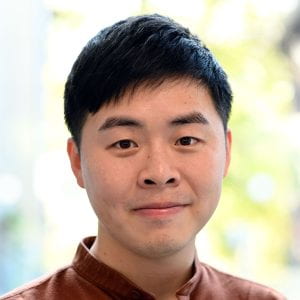
Seeking Home in the Colonial Port: Migration and Settlement of Chinese Workers in Hong Kong, c. 1900-1941
Alex Cheung’s research examines the daily life experience of working-class migrants in early twentieth-century Hong Kong when lower-class Chinese moved across Asian port cities to seek fortunes. Many came to stay in Hong Kong, and colonial officials found it necessary to govern urban problems such as housing, labour force, and cross-border movement.
Focusing on the interaction of the colonial state and working-class migrants, he will explore both opportunities and restrictions of the British colonial port for its mobile residents. In the broader context of port city and migration in modern time, he seek to address on the meaning of mobility for lower-class port-city dwellers.

Imperial Graduates: Mapping Hong Kong’s Elites’ Networks across the British Empire, 1862-1941
Ryan Iu‘s project investigates the Hong Kong Chinese and Eurasian elite in a local, transregional, and intra-imperial context. These were the alumni of either the Government Central School (est. 1862) or the Diocesan Boys’ School (est. 1869). Through colonial education, they secured a pathway to elite status, and an access to an established ‘old boys’ network’ and the political/ commercial opportunities to expand into Britain and across the Empire.
In time, these local elites formed transpacific, maritime, and intra-imperial connections and significantly causing the origin of internationalism in early Hong Kong under colonial rule.
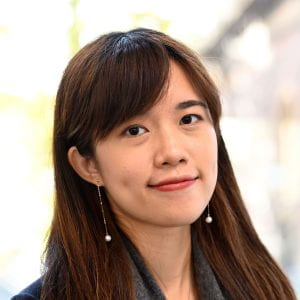
Governing Youth in post-WWII Hong Kong, 1945-1970s
Tracy Leung‘s research examines how the colonial government’s strategy in the management of youth changed in relation to the evolving threat of communism in Asia and the global trend towards anti-colonialism in post-WWII Hong Kong. It will explain the staggering change in the government’s attitude towards youth welfare policies, looking into how the colonial state linked up with voluntary youth organizations to deal with the problems of ‘juvenile delinquency’ and regulated youth leisure.
It also engages the broader imperial context by examining how the post- war youth policy in Hong Kong compared with Britain itself and other British colonies, addressing to what extent it was an influential model in and of itself.

Yiuwa Chung is Senior Research Administrator of Hong Kong History Centre.

The Making of Cold War Hong Kong: A Trans-national Cultural Geography Study of the Kai Tak Airport, 1945–1998
Duncan Ma’s research examines the formation of Cold War Hong Kong through the lens of Kai Tak Airport. In response to the ever-changing Cold War geopolitics, refurbishments on the Kai Tak Airport had been conducted since 1950s and was finally replaced by the one located in Chek Lap Kok, the current Hong Kong International Airport. This project narrates the Kai Tak Airport was not merely an urban infrastructure, but it will examine the Airport in pragmatic, imaginary, and experiential spaces throughout Hong Kong, East Asia, and the Global World.
With a special attention to cultural productions, it accesses Kai Tak Airport as a landmark. By deciphering the Kai Tak landscape iconography, it will form a better understanding toward the trans-national and cross-cultural dynamics that re-present the Cold War Hong Kong.

I joined the the Hong Kong History Project (HKHP) as its second PhD studentship recipient. The project provided me with everything I needed to embrace the process of learning, failing, and radiating professionally and personally. I was able to broaden my network and meet inspirational people who have helped shape my career. More importantly, I found at the HKHP a safe and stimulating stomping ground that underpinned my growth as a historian. The years spent with Robert Bickers and peers have shown me how a foolish idea can develop into a great narrative if nurtured with effort, heart, and support.
I kept this close to my work as I ventured out to the world upon graduating. As I took on the positions of Assistant Professor at the University of Macau and now Research Assistant Professor at Lingnan University, I find solace in knowing I have the Hong Kong History Centre as a lifelong partner and I have friends, now working in different parts of the world, who share the same vision of restoring Hong Kong’s past through the diverse experiences of its inhabitants.
Thesis: Empire Drifters: The Macanese in British Hong Kong, 1841-1941

The Hong Kong History Project played a pivotal role in shaping my career. I am immensely grateful for the generous studentship that supported my studies from 2016 to 2020, which enabled me to pursue my research on Hong Kong history. The project’s network connected me with a diverse academic community that not only fostered collaborative opportunities and intellectual exchange, but also enriched my personal growth.
I firmly believe that the project significantly assisted me in securing my post-doctoral appointments and nurturing my development. In 2019, I became an Assistant Lecturer at the College of International Education at Hong Kong Baptist University, and in 2021 I was appointed as a Lecturer in the Department of History there. Currently, I serve as an Assistant Professor of Teaching at Lingnan University. I am indebted to the Centre for its unwavering support, which has been instrumental in shaping my academic journey and professional growth. I remain committed to advancing the understanding and appreciation of Hong Kong’s rich historical heritage and look forward to further collaboration and engagement within this vibrant academic community.
Thesis: Suit Up: Western Fashion, Chinese Society and Cosmopolitanism in Colonial Hong Kong, 1910-1980

I began my PhD research at the University of Bristol in September 2015, coinciding with the formation of the Hong Kong History Project – the forerunner of the Hong Kong History Centre. With the growth of the Project, the number of researchers studying Hong Kong history increased, forming an invaluable network. This community of fellow students and colleagues supported my PhD studies socially and intellectually, helping to ultimately shape my thesis. Regular meetings of the Project group allowed us to share work in progress, discuss recent work in the field, and invite guest speakers.
As well as supporting some of my fieldwork in Hong Kong, the Project enabled me to organise several events. These included an exhibition of Hong Kong photographs at the Bristol Museum in February 2018, and a conference, All Roads Lead to Hong Kong, co-hosted with the University of Hong Kong in June 2019. I have carried the skills and network I gained from the Project into my post-PhD career as a Civil Servant.
Thesis: Britons Abroad: Navigating Imperialism in Late Colonial Hong Kong, 1980-2000

Muriel Yeung is a Project Archivist in the archives team, responsible for managing collection, and supporting research, teaching, learning, and public engagement with the Hong Kong Collections. Prior to joining Bristol, Muriel has extensive experience leading business archives across diverse industries in Hong Kong.

Studying for a PhD with the Hong Kong History Project at the University of Bristol was one of the most rewarding decisions I’ve ever made. With the guidance of my supervisors, and through time spent with my peers at Bristol, I challenged myself to think about Hong Kong – and British – history beyond the confines of official records and narratives.
Being part of the HKHP has enhanced my professional life as a researcher and analyst, and the friends I made there have given me a life-long network of world-class historians.
Thesis: A New Way of Life: The Emergence of a Political Identity and Consciousness in Hong Kong, 1945-1979

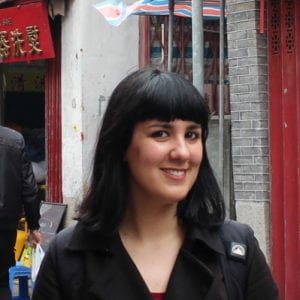
Helena Lopes is a historian of modern China and global history. Her research focuses on the international, political, and social history of the Second World War and the early post-war period in South China, including imperialism(s), anti-imperialism, and decolonisation, as well as experiences of movement, displacement and refugees.
She is also interested in histories of Chinese migration more broadly, in histories of Portuguese and Welsh communities in twentieth-century East Asia, and in Chinese/Sinophone cinemas. She is the author of Neutrality and Collaboration in South China: Macau during the Second World War (Cambridge University Press, 2023). She holds a DPhil in History from the University of Oxford and held lectureships at the University of Oxford and the University of Bristol. At Bristol, she also worked with the Historical Photographs of China Project as Senior Research Associate in the History of Hong Kong and she was a Leverhulme Early Career Research Fellow in 2020-23.
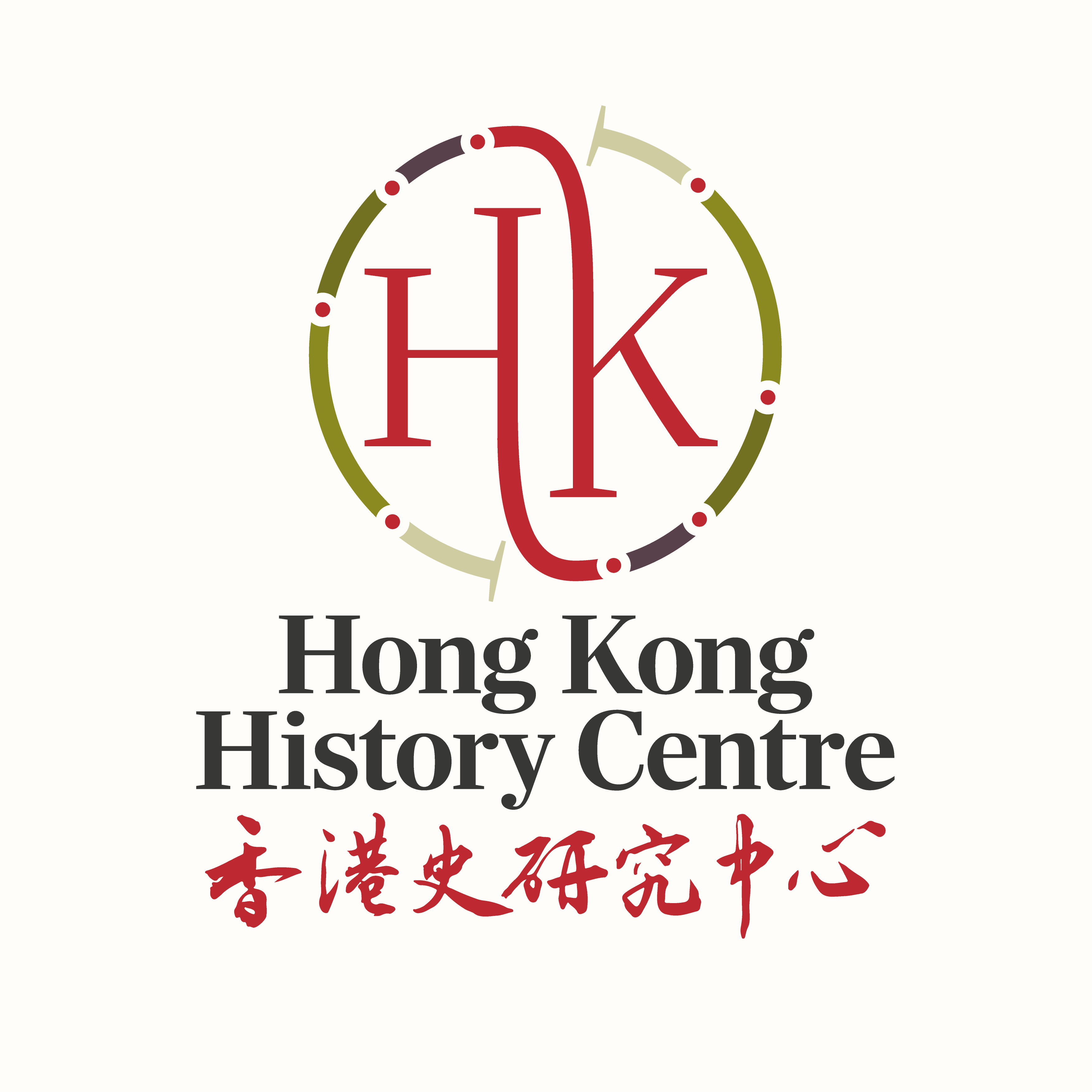
Josepha Richard is an art historian and historian of 18-19th century China, with a specific interest in studying the art of Chinese gardens, early Sino-Western interactions and the urban, social and art history of the city of Guangzhou (Canton). Her most recent project combines history of science and art, by researching botanically accurate paintings of Chinese plants commissioned by British trader John Bradby Blake in late 18th century Canton and kept at the Oak Spring Garden Foundation (Virginia).

I started at Bristol in 2017 as an affiliate of the Hong Kong History Project, funded by the Augustine Heard Studentship. This award provided the support to live and study in the UK, and a generous allowance for overseas research, workshop organisation at Bristol, and networking with peers. My experience was in turn augmented by the close professional and personal relationships formed with my cohort and the wider community of Hong Kong scholars; all of which directly stemmed from the initiative’s success at cultivating international research networks.
Following my PhD, further funding from the Augustine Heard donor and from the Centre allowed me to build a strong portfolio of work and complete my monograph The China Firm: Elite Americans and the Making of British Colonial Society (New York: Columbia University Press, 2023). As I transition into my next role as Assistant Professor at the University of Prince Edward Island, I look back with gratitude at the professional training and space to grow that the studentship and fellowship provided, and at the opportunities, in general, that our donors have created for myself and for an up-and-coming generation of historians.

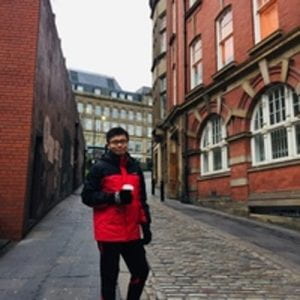
The Cold War and Sino-British negotiations over Hong Kong’s future, 1979-1984
Wai Li Chu obtained his MPhil at the Department of History, Hong Kong Baptist University, before coming to study at Bristol. His project examines the wider contexts of the negotiations between Britain and China over Hong Kong’s future, such as discussions with other powers including the United States and Australia. The project also looks at how decolonisation globally influenced relations between Britain and its colony in this period.
A part-time student, he works at the Public Record Office in Hong Kong as an Assistant Archivist.

Kelvin Chan is a historian of medicine and the British Empire, with a particular focus on colonial Hong Kong. His PhD research focuses on the history of psychiatry during the mid and late 20th centuries. It examines the transformation of colonial psychiatry in the age of decolonization and, more importantly, its influence on our current understanding of mental illness. Part of his research has been published in China Information and Medical History. His next project examines the globalization of Traditional Chinese Medicine between the 1950s and the 1980s, investigating the transnational businesses of Chinese medicine companies and careers of practitioners between Hong Kong, Southeast Asia, and North America.

Andrew Bellamy is a PhD candidate at Rutgers University. His research lies at the intersection of colonial Asian history and histories of capitalism. His dissertation, Defying Gravity: The Namazi Family and the Persian Opium Trade in the Age of Prohibition, is a study of the Namazi family, a family of Persian merchants who dominated both the legal and illegal global trades in Persian opium from their offices in Hong Kong, Singapore, Shiraz, Bombay, and Shanghai. Through this project, he seeks to shed new light on the international turn against opium as a moment of possibility – not defeat – for opium merchants, on Persia’s unexpected yet deep connections to traditional sites of empire and to global capital, and on the persistence of the family firm as a surprisingly viable business model in the age of the multinational corporation.

Melody Hoi-lam YIU is an urban researcher-designer focusing on public architecture and cultural development, currently a Research Assistant Professor at the School of Architecture, Chinese University of Hong Kong (CUHK). Following a decade-long practice in architecture and design, she integrates professional insight with her interest in arts and culture to pursue research on urban cultural development, as well as engaging in artistic collaborations and space design projects. Her recently published monograph, “Cultural Architecture and Late-colonial Space” (Routledge, 2025), accounts for the spatial history of public cultural architecture in Hong Kong. The current research examines the design and development history of the municipal cultural buildings (Town Halls, Civic Centres, Museums, and Theatres) in late colonial Hong Kong, as well as the topic of cultural infrastructure and its agency in the cultural development of Asian cities.

Koji Hirata is a Senior Research Fellow in History at Monash University. His research focuses on modern China and its foreign economic and political interactions, especially with Japan, Russia/the Soviet Union, and Britain. His recent publications include Making Mao’s Steelworks: Industrial Manchuria and the Transnational Origins of Chinese Socialism (Cambridge University Press, 2024). With a three-year DECRA fellowship from the Australian Research Council, he is currently writing a new book on Mao-era China’s international economic relations, focusing on the Soviet Union, Japan, Hong Kong, and beyond. He is also undertaking a separate book project on sovereign debt in late Qing and Republican China, with a particular—but not exclusive—focus on foreign loans from the Hongkong and Shanghai Banking Corporation (HSBC).

Dr. Kwong Chi Man is an associate professor in the history department of Hong Kong Baptist University. He specialises in the military and naval history of modern East Asia, particularly from the Sino-Japanese War (1894–1895) to the 1970s. He has published Eastern Fortress A Military History of Hong Kong, 1840–1970 (co-authored) and Hongkongers in the British Armed Forces. His works can also be found in Modern Asian Studies, War in History, and Journal of Military History. Recently, he released a number of Digital Humanities projects, such as the Japanese occupation of Hong Kong: A Spatial History Project: https://digital.lib.hkbu.edu.hk/japanese_occupation_of_hongkong/

Dr. Liza Wing Man Kam is an Assistant Professor in Department of East Asian Studies (Chinese Studies) at University of Vienna. Her research interests include Hong Kong and Taiwan’s colonial architecture and the transmutation in their particular postcolonial settings, postwar cultural and urban spaces, and culinary cultures. She conducted her PhD research at the Bauhaus in Germany and have been teaching and researching in Germany, Taiwan, Hong Kong, the US and Japan.

Dr. Diki Sherpa, is a Post-Doctoral Research Fellow at the Centre for Knowledge Alternatives, School of Social Sciences, FLAME University, India. She holds a Ph.D. in History from The Chinese University of Hong Kong where she explored how governing practices were transferred and adapted across the British Empire, tracing the circulation of administrative models from colonial India to early Hong Kong. At FLAME, her current research focuses on colonial gazetteers as historical sources, exploring how they reflected the evolving role of knowledge production in India after 1857. By examining colonial political debates, epistemological anxieties, and shifting definitions of knowledge, her work investigates how ideological transformations under Crown rule influenced the structures and purposes of knowledge. Her broader research interests span imperial history and colonial history, Knowledge production, South and East Asian history.

Rosaria Franco is an Assistant Professor in Modern History at the Chinese campus of the University of Nottingham. Her research is situated at the intersection of history of childhood, refugee history, and the history of empires and colonialism. She is writing a transimperial history of Anglo-American humanitarian assistance to Chinese refugee children in post-war and cold war Hong Kong.

Samuel Lai is a PhD Candidate at the Department of Anthropology and Sociology, SOAS, University of London. His research focuses on Hong Kong foodways, in particular caacaanteng (cha chan teng; tea restaurant) and its multiple facades of cuisine, operation, skill and sociality. Based primarily on his 14-month observant-participation as waiter, cook and baker, he seeks to understand the daily lives through flavour and cuisines, revealing habits and values in Hong Kong.

Kachun Alex Wong is a PhD Candidate in Architecture, Landscape, and Design at the University of Toronto. His dissertation is supported by SSHRC Doctoral Fellowship (2024-6). His dissertation, tentatively titled “Categorizing Housing: Rural, village, and indigenous housing in the New Territories, Hong Kong, the 1970s and the present”, examines rural public housing, squatters, village-type houses and small houses. The dissertation utilizes both archival and social methods to examine the housing as entanglements between architecture, and law and policy.

Yuwei FU is currently a PhD student at the history department of Lingnan University, where her research focuses on the shaping of Hong Kong identity in postwar years. Before joining Lingnan University, she received an MSc in History of International Relations at the London School of Economics and Political Science. Her paper US Cold War Music Diplomacy in the PRC was presented at the Cold War Research Centre International Student Conference at the Corvinus University of Budapest. She also gave a presentation The Beatles, Hong Kong Youth Culture, and Hong Kong Identity at the NACBS conference in Denver.

Junwei Li is a PhD student from The Chinese University of Hong Kong. His research delves into the colonial government’s regulations on density management in 1950s-60s Hong Kong. These regulations and laws significantly shaped the high-density housing landscape we see today. The study explores the colonial approach to private property, highlighting the administrative strategies and their evolution in response to socio-economic changes. By examining the interplay between local contexts and global knowledge, the research reveals the origins, transformation, and localization of density management practices.

Ryan Choi is a PhD candidate at the University of Edinburgh. His research focuses on Chinese-language collaborationist literature in Japanese-occupied Hong Kong (1941-1945). Through a critical analysis of documentary and literary texts published in newspapers and periodicals, as well as personal documents such as diaries and memoirs, his research aims to reconstruct the cultural landscape of occupied Hong Kong.
Robert Bickers is a historian of colonialism, in particular of the British Empire and its relations with China and the histories of Shanghai, Hong Kong, and modern Chinese history. He has authored eight books and countless articles on the British in China, and overseen numerous projects including the Hong Kong History Project and Historical Photographs of China. Robert Bickers is Professor of History at the University of Bristol and is currently working on a new research project covering the history of Hong Kong.
Vivian Kong is Senior Lecturer in Modern Chinese History at the University of Bristol. Born and raised in Hong Kong, Vivian received her BA and MPhil from the University of Hong Kong, and completed her PhD at Bristol in 2019. Since her PhD she has worked closely with Bristol’s Hong Kong History Project. Her research to-date has focused on Hong Kong and its transnational connections, and she has published on migration, identities, and civil society in interwar Hong Kong. Her first book, Multiracial Britishness: Global Networks in Hong Kong 1910-45 (Cambridge University Press), explains the long history of engagement that the multiracial residents of Hong Kong have made with Britishness, and how this affects identity formation in the city today.
Ray Kin-man Yep is a historian specialising in the political economy of China’s reforms, late colonial governance of Hong Kong and contentious politics. He has published in leading peer-reviewed journals and has authored multiple books on Hong Kong studies. Ray has held visiting positions in Bristol University, Peking University, University of Macau, Brookings Institution and Academia Sinica. He is also active in public service and has served in the Central Policy Unit, Advisory Council for Environment, and Strategy Subcommittee of Sustainable Development Council in Hong Kong.
Peter E. Hamilton is a historian of modern China and the World with particular interests in Chinese migration, the history of capitalism, and Sino-U.S. Relations. He is the author of Made in Hong Kong: Transpacific Networks and a New History of Globalization (Columbia University Press, 2021), which was recently translated into Chinese as 香港製造: 跨太平洋網絡與全球化新史 (季風帶文化, 2024). Born and raised in Kansas City, Dr. Hamilton received his undergraduate education at Yale University and then taught at The Chinese University of Hong Kong as a Yale-China Teaching Fellow. He then earned his M.A. (2011) and Ph.D. (2015) in History at the University of Texas at Austin under the supervision of Professor Madeline Y. Hsu. Before joining Bristol, Dr. Hamilton held fellowships and positions at Columbia University in New York, Tsinghua University’s Schwarzman College, Trinity College Dublin, and Lingnan University in Hong Kong.
Allan Pang is a historian of Hong Kong, Chinese overseas, and Southeast Asia. His research engages with themes such as history education, popular culture, and decolonisation from a transregional perspective across East and Southeast Asia. He received his BA and MPhil from the University of Hong Kong and is completing his PhD at the University of Cambridge. His current research examines formal and informal history education across Chinese communities in Hong Kong, Malaya/Malaysia, and Singapore from the 1950s onwards. At the Hong Kong History Centre, Allan is also conducting a project on the history of Chinese popular music across Hong Kong and Southeast Asia. He has published in journals such as the Journal of Imperial and Commonwealth History and the Historical Journal.

Ambiguous Nationality: British Subjects of Chinese Descent, c.1880-1962
Phyllis Chan’s research looks at the legal nationality of people of Chinese descent born in Hong Kong. Prior to the 1960s, English common law bestowed British subjecthood (which in turn conferred nationality rights) on all those born within British dominion, no matter their colour.
However, due to imperial racial hierarchies, patchy birth registration, and the open border with mainland China, officials often questioned the rights of subjects of Chinese descent, or saw their status as ‘doubtful’ or ambiguous. Her thesis will explore these cases to interrogate the legal and cultural criteria seen as necessary for being ‘British’, and identify the evidence used by subjects who claimed to fulfil them.

Seeking Home in the Colonial Port: Migration and Settlement of Chinese Workers in Hong Kong, c. 1900-1941
Alex Cheung’s research examines the daily life experience of working-class migrants in early twentieth-century Hong Kong when lower-class Chinese moved across Asian port cities to seek fortunes. Many came to stay in Hong Kong, and colonial officials found it necessary to govern urban problems such as housing, labour force, and cross-border movement.
Focusing on the interaction of the colonial state and working-class migrants, he will explore both opportunities and restrictions of the British colonial port for its mobile residents. In the broader context of port city and migration in modern time, he seek to address on the meaning of mobility for lower-class port-city dwellers.

Imperial Graduates: Mapping Hong Kong’s Elites’ Networks across the British Empire, 1862-1941
Ryan Iu‘s project investigates the Hong Kong Chinese and Eurasian elite in a local, transregional, and intra-imperial context. These were the alumni of either the Government Central School (est. 1862) or the Diocesan Boys’ School (est. 1869). Through colonial education, they secured a pathway to elite status, and an access to an established ‘old boys’ network’ and the political/ commercial opportunities to expand into Britain and across the Empire.
In time, these local elites formed transpacific, maritime, and intra-imperial connections and significantly causing the origin of internationalism in early Hong Kong under colonial rule.

Governing Youth in post-WWII Hong Kong, 1945-1970s
Tracy Leung‘s research examines how the colonial government’s strategy in the management of youth changed in relation to the evolving threat of communism in Asia and the global trend towards anti-colonialism in post-WWII Hong Kong. It will explain the staggering change in the government’s attitude towards youth welfare policies, looking into how the colonial state linked up with voluntary youth organizations to deal with the problems of ‘juvenile delinquency’ and regulated youth leisure.
It also engages the broader imperial context by examining how the post- war youth policy in Hong Kong compared with Britain itself and other British colonies, addressing to what extent it was an influential model in and of itself.

Yiuwa Chung is Senior Research Administrator of Hong Kong History Centre.

The Making of Cold War Hong Kong: A Trans-national Cultural Geography Study of the Kai Tak Airport, 1945–1998
Duncan Ma’s research examines the formation of Cold War Hong Kong through the lens of Kai Tak Airport. In response to the ever-changing Cold War geopolitics, refurbishments on the Kai Tak Airport had been conducted since 1950s and was finally replaced by the one located in Chek Lap Kok, the current Hong Kong International Airport. This project narrates the Kai Tak Airport was not merely an urban infrastructure, but it will examine the Airport in pragmatic, imaginary, and experiential spaces throughout Hong Kong, East Asia, and the Global World.
With a special attention to cultural productions, it accesses Kai Tak Airport as a landmark. By deciphering the Kai Tak landscape iconography, it will form a better understanding toward the trans-national and cross-cultural dynamics that re-present the Cold War Hong Kong.

I joined the the Hong Kong History Project (HKHP) as its second PhD studentship recipient. The project provided me with everything I needed to embrace the process of learning, failing, and radiating professionally and personally. I was able to broaden my network and meet inspirational people who have helped shape my career. More importantly, I found at the HKHP a safe and stimulating stomping ground that underpinned my growth as a historian. The years spent with Robert Bickers and peers have shown me how a foolish idea can develop into a great narrative if nurtured with effort, heart, and support.
I kept this close to my work as I ventured out to the world upon graduating. As I took on the positions of Assistant Professor at the University of Macau and now Research Assistant Professor at Lingnan University, I find solace in knowing I have the Hong Kong History Centre as a lifelong partner and I have friends, now working in different parts of the world, who share the same vision of restoring Hong Kong’s past through the diverse experiences of its inhabitants.
Thesis: Empire Drifters: The Macanese in British Hong Kong, 1841-1941

The Hong Kong History Project played a pivotal role in shaping my career. I am immensely grateful for the generous studentship that supported my studies from 2016 to 2020, which enabled me to pursue my research on Hong Kong history. The project’s network connected me with a diverse academic community that not only fostered collaborative opportunities and intellectual exchange, but also enriched my personal growth.
I firmly believe that the project significantly assisted me in securing my post-doctoral appointments and nurturing my development. In 2019, I became an Assistant Lecturer at the College of International Education at Hong Kong Baptist University, and in 2021 I was appointed as a Lecturer in the Department of History there. Currently, I serve as an Assistant Professor of Teaching at Lingnan University. I am indebted to the Centre for its unwavering support, which has been instrumental in shaping my academic journey and professional growth. I remain committed to advancing the understanding and appreciation of Hong Kong’s rich historical heritage and look forward to further collaboration and engagement within this vibrant academic community.
Thesis: Suit Up: Western Fashion, Chinese Society and Cosmopolitanism in Colonial Hong Kong, 1910-1980

I began my PhD research at the University of Bristol in September 2015, coinciding with the formation of the Hong Kong History Project – the forerunner of the Hong Kong History Centre. With the growth of the Project, the number of researchers studying Hong Kong history increased, forming an invaluable network. This community of fellow students and colleagues supported my PhD studies socially and intellectually, helping to ultimately shape my thesis. Regular meetings of the Project group allowed us to share work in progress, discuss recent work in the field, and invite guest speakers.
As well as supporting some of my fieldwork in Hong Kong, the Project enabled me to organise several events. These included an exhibition of Hong Kong photographs at the Bristol Museum in February 2018, and a conference, All Roads Lead to Hong Kong, co-hosted with the University of Hong Kong in June 2019. I have carried the skills and network I gained from the Project into my post-PhD career as a Civil Servant.
Thesis: Britons Abroad: Navigating Imperialism in Late Colonial Hong Kong, 1980-2000

Muriel Yeung is a Project Archivist in the archives team, responsible for managing collection, and supporting research, teaching, learning, and public engagement with the Hong Kong Collections. Prior to joining Bristol, Muriel has extensive experience leading business archives across diverse industries in Hong Kong.

Studying for a PhD with the Hong Kong History Project at the University of Bristol was one of the most rewarding decisions I’ve ever made. With the guidance of my supervisors, and through time spent with my peers at Bristol, I challenged myself to think about Hong Kong – and British – history beyond the confines of official records and narratives.
Being part of the HKHP has enhanced my professional life as a researcher and analyst, and the friends I made there have given me a life-long network of world-class historians.
Thesis: A New Way of Life: The Emergence of a Political Identity and Consciousness in Hong Kong, 1945-1979


Helena Lopes is a historian of modern China and global history. Her research focuses on the international, political, and social history of the Second World War and the early post-war period in South China, including imperialism(s), anti-imperialism, and decolonisation, as well as experiences of movement, displacement and refugees.
She is also interested in histories of Chinese migration more broadly, in histories of Portuguese and Welsh communities in twentieth-century East Asia, and in Chinese/Sinophone cinemas. She is the author of Neutrality and Collaboration in South China: Macau during the Second World War (Cambridge University Press, 2023). She holds a DPhil in History from the University of Oxford and held lectureships at the University of Oxford and the University of Bristol. At Bristol, she also worked with the Historical Photographs of China Project as Senior Research Associate in the History of Hong Kong and she was a Leverhulme Early Career Research Fellow in 2020-23.

Josepha Richard is an art historian and historian of 18-19th century China, with a specific interest in studying the art of Chinese gardens, early Sino-Western interactions and the urban, social and art history of the city of Guangzhou (Canton). Her most recent project combines history of science and art, by researching botanically accurate paintings of Chinese plants commissioned by British trader John Bradby Blake in late 18th century Canton and kept at the Oak Spring Garden Foundation (Virginia).

I started at Bristol in 2017 as an affiliate of the Hong Kong History Project, funded by the Augustine Heard Studentship. This award provided the support to live and study in the UK, and a generous allowance for overseas research, workshop organisation at Bristol, and networking with peers. My experience was in turn augmented by the close professional and personal relationships formed with my cohort and the wider community of Hong Kong scholars; all of which directly stemmed from the initiative’s success at cultivating international research networks.
Following my PhD, further funding from the Augustine Heard donor and from the Centre allowed me to build a strong portfolio of work and complete my monograph The China Firm: Elite Americans and the Making of British Colonial Society (New York: Columbia University Press, 2023). As I transition into my next role as Assistant Professor at the University of Prince Edward Island, I look back with gratitude at the professional training and space to grow that the studentship and fellowship provided, and at the opportunities, in general, that our donors have created for myself and for an up-and-coming generation of historians.


The Cold War and Sino-British negotiations over Hong Kong’s future, 1979-1984
Wai Li Chu obtained his MPhil at the Department of History, Hong Kong Baptist University, before coming to study at Bristol. His project examines the wider contexts of the negotiations between Britain and China over Hong Kong’s future, such as discussions with other powers including the United States and Australia. The project also looks at how decolonisation globally influenced relations between Britain and its colony in this period.
A part-time student, he works at the Public Record Office in Hong Kong as an Assistant Archivist.

Kelvin Chan is a historian of medicine and the British Empire, with a particular focus on colonial Hong Kong. His PhD research focuses on the history of psychiatry during the mid and late 20th centuries. It examines the transformation of colonial psychiatry in the age of decolonization and, more importantly, its influence on our current understanding of mental illness. Part of his research has been published in China Information and Medical History. His next project examines the globalization of Traditional Chinese Medicine between the 1950s and the 1980s, investigating the transnational businesses of Chinese medicine companies and careers of practitioners between Hong Kong, Southeast Asia, and North America.

Andrew Bellamy is a PhD candidate at Rutgers University. His research lies at the intersection of colonial Asian history and histories of capitalism. His dissertation, Defying Gravity: The Namazi Family and the Persian Opium Trade in the Age of Prohibition, is a study of the Namazi family, a family of Persian merchants who dominated both the legal and illegal global trades in Persian opium from their offices in Hong Kong, Singapore, Shiraz, Bombay, and Shanghai. Through this project, he seeks to shed new light on the international turn against opium as a moment of possibility – not defeat – for opium merchants, on Persia’s unexpected yet deep connections to traditional sites of empire and to global capital, and on the persistence of the family firm as a surprisingly viable business model in the age of the multinational corporation.

Melody Hoi-lam YIU is an urban researcher-designer focusing on public architecture and cultural development, currently a Research Assistant Professor at the School of Architecture, Chinese University of Hong Kong (CUHK). Following a decade-long practice in architecture and design, she integrates professional insight with her interest in arts and culture to pursue research on urban cultural development, as well as engaging in artistic collaborations and space design projects. Her recently published monograph, “Cultural Architecture and Late-colonial Space” (Routledge, 2025), accounts for the spatial history of public cultural architecture in Hong Kong. The current research examines the design and development history of the municipal cultural buildings (Town Halls, Civic Centres, Museums, and Theatres) in late colonial Hong Kong, as well as the topic of cultural infrastructure and its agency in the cultural development of Asian cities.

Koji Hirata is a Senior Research Fellow in History at Monash University. His research focuses on modern China and its foreign economic and political interactions, especially with Japan, Russia/the Soviet Union, and Britain. His recent publications include Making Mao’s Steelworks: Industrial Manchuria and the Transnational Origins of Chinese Socialism (Cambridge University Press, 2024). With a three-year DECRA fellowship from the Australian Research Council, he is currently writing a new book on Mao-era China’s international economic relations, focusing on the Soviet Union, Japan, Hong Kong, and beyond. He is also undertaking a separate book project on sovereign debt in late Qing and Republican China, with a particular—but not exclusive—focus on foreign loans from the Hongkong and Shanghai Banking Corporation (HSBC).

Dr. Kwong Chi Man is an associate professor in the history department of Hong Kong Baptist University. He specialises in the military and naval history of modern East Asia, particularly from the Sino-Japanese War (1894–1895) to the 1970s. He has published Eastern Fortress A Military History of Hong Kong, 1840–1970 (co-authored) and Hongkongers in the British Armed Forces. His works can also be found in Modern Asian Studies, War in History, and Journal of Military History. Recently, he released a number of Digital Humanities projects, such as the Japanese occupation of Hong Kong: A Spatial History Project: https://digital.lib.hkbu.edu.hk/japanese_occupation_of_hongkong/

Dr. Liza Wing Man Kam is an Assistant Professor in Department of East Asian Studies (Chinese Studies) at University of Vienna. Her research interests include Hong Kong and Taiwan’s colonial architecture and the transmutation in their particular postcolonial settings, postwar cultural and urban spaces, and culinary cultures. She conducted her PhD research at the Bauhaus in Germany and have been teaching and researching in Germany, Taiwan, Hong Kong, the US and Japan.

Dr. Diki Sherpa, is a Post-Doctoral Research Fellow at the Centre for Knowledge Alternatives, School of Social Sciences, FLAME University, India. She holds a Ph.D. in History from The Chinese University of Hong Kong where she explored how governing practices were transferred and adapted across the British Empire, tracing the circulation of administrative models from colonial India to early Hong Kong. At FLAME, her current research focuses on colonial gazetteers as historical sources, exploring how they reflected the evolving role of knowledge production in India after 1857. By examining colonial political debates, epistemological anxieties, and shifting definitions of knowledge, her work investigates how ideological transformations under Crown rule influenced the structures and purposes of knowledge. Her broader research interests span imperial history and colonial history, Knowledge production, South and East Asian history.

Rosaria Franco is an Assistant Professor in Modern History at the Chinese campus of the University of Nottingham. Her research is situated at the intersection of history of childhood, refugee history, and the history of empires and colonialism. She is writing a transimperial history of Anglo-American humanitarian assistance to Chinese refugee children in post-war and cold war Hong Kong.

Samuel Lai is a PhD Candidate at the Department of Anthropology and Sociology, SOAS, University of London. His research focuses on Hong Kong foodways, in particular caacaanteng (cha chan teng; tea restaurant) and its multiple facades of cuisine, operation, skill and sociality. Based primarily on his 14-month observant-participation as waiter, cook and baker, he seeks to understand the daily lives through flavour and cuisines, revealing habits and values in Hong Kong.

Kachun Alex Wong is a PhD Candidate in Architecture, Landscape, and Design at the University of Toronto. His dissertation is supported by SSHRC Doctoral Fellowship (2024-6). His dissertation, tentatively titled “Categorizing Housing: Rural, village, and indigenous housing in the New Territories, Hong Kong, the 1970s and the present”, examines rural public housing, squatters, village-type houses and small houses. The dissertation utilizes both archival and social methods to examine the housing as entanglements between architecture, and law and policy.

Yuwei FU is currently a PhD student at the history department of Lingnan University, where her research focuses on the shaping of Hong Kong identity in postwar years. Before joining Lingnan University, she received an MSc in History of International Relations at the London School of Economics and Political Science. Her paper US Cold War Music Diplomacy in the PRC was presented at the Cold War Research Centre International Student Conference at the Corvinus University of Budapest. She also gave a presentation The Beatles, Hong Kong Youth Culture, and Hong Kong Identity at the NACBS conference in Denver.

Junwei Li is a PhD student from The Chinese University of Hong Kong. His research delves into the colonial government’s regulations on density management in 1950s-60s Hong Kong. These regulations and laws significantly shaped the high-density housing landscape we see today. The study explores the colonial approach to private property, highlighting the administrative strategies and their evolution in response to socio-economic changes. By examining the interplay between local contexts and global knowledge, the research reveals the origins, transformation, and localization of density management practices.

Ryan Choi is a PhD candidate at the University of Edinburgh. His research focuses on Chinese-language collaborationist literature in Japanese-occupied Hong Kong (1941-1945). Through a critical analysis of documentary and literary texts published in newspapers and periodicals, as well as personal documents such as diaries and memoirs, his research aims to reconstruct the cultural landscape of occupied Hong Kong.